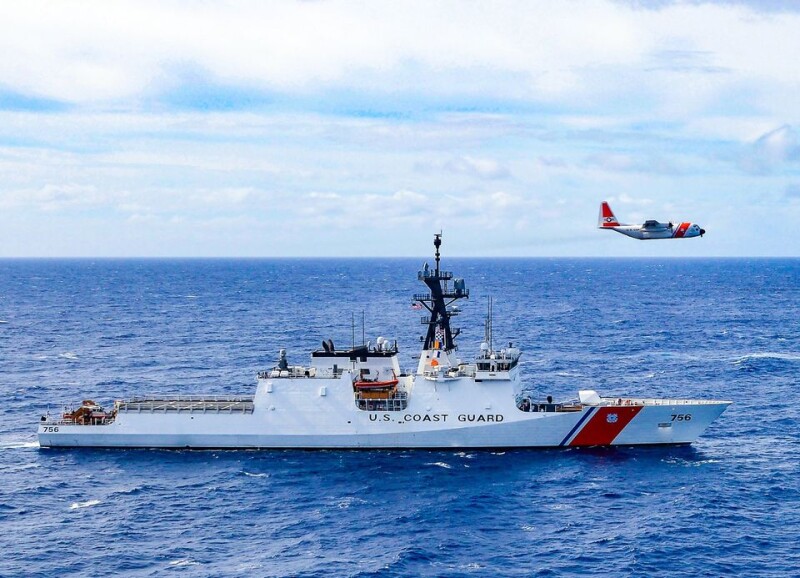Last week, the United States Coast Guard encountered three Chinese military ships in the Bering Sea. Coast Guard Cutter Kimball detected these vessels about 124 miles north of Amchitka Pass in the Aleutian Islands, and an HC-130J aircrew from Kodiak Air Station detected another vessel about 84 miles north of Amukta Pass. All were within the peak of salmon season.
All four of the Chinese vessels were transiting in international waters but still inside the U.S. Exclusive Economic Zone (EEZ), which extends 200 nautical miles from the shoreline. Commercial fishermen within the U.S. EEZ are subject to federal jurisdiction and under authority delegated by the North Pacific Fisheries Management Council (NPFMC). The Council developed the Fishery Management Plan (FMP) for the salmon fisheries in the EEZ off Alaska under the Magnuson-Stevens Fishery Conservation and Management Act. In 1979, the FMP became effective and was approved by the Secretary of Commerce, with revisions made in 2018 through Amendment 13.
The timeline of current action to amend FMP to include the Cook Inlet EEZ Fisheries has been in the developmental stages. Back in February 2024, National Fisherman shared that public comments were collected on the proposal of federal management on commercial and recreational salmon fishing in the Cook Inlet EEZ.
The commercial drift gillnet fleet harvests over 99.99 percent of salmon in the Cook Inlet EEZ Area and remains under Alaska state management. With the traffic within the EEZ, with the salmon season opening on June 20, the Coast Guard monitored the Chinese vessels to ensure the safety of the commercial fishermen in the area.
“The Chinese naval presence operated in accordance with international rules and norms,” said Rear Adm. Megan Dean, seventeenth Coast Guard district commander. “We met presence with presence to ensure there were no disruptions to the U.S. interests in the maritime environment around Alaska.”
The Chinese vessels responded to the U.S. Coast Guard radio communication, and their stated purpose was “freedom of navigation operations.” Cutter Kimball continued to monitor all ships until they transitioned south of the Aleutian Islands into the North Pacific.
The Coast Guard shared in a release that the Kimball will continue monitoring activities in the U.S. EEZ to ensure the safety of U.S. vessels and international commerce.







